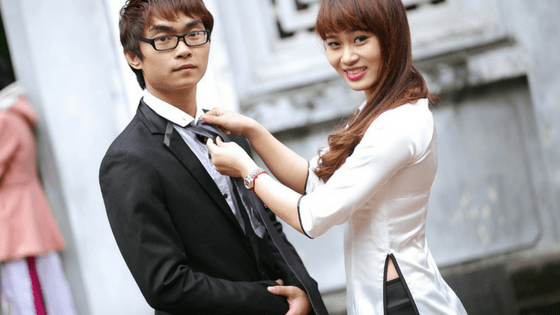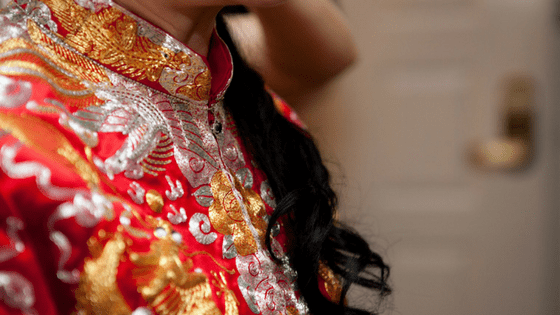Chinese Dating Culture: The Old and New
China is one of the leading countries in terms of technological advancements. Despite this, it has preserved its ancient culture like any other Asian country. In this conservative country that values customs and traditions above all else, casually dating can go against their dating norms. Adapting to the new Chinese dating culture can be difficult but not impossible.
Chinese Dating Environment

Dating Practices in China has evolved over the years. The dating practices in China has gone from being dependent on matchmakers to relying on their freedom of choice. The innovation of dating in general and the different western influences played a huge role in changing the Chinese courtship etiquette. Both old and new Chinese dating cultures dramatically depended on region and province. Like Singapore, money and wealth have a significant influence on how Chinese men, especially women, choose their partner.
Even though we’ve entered the era of online dating, understanding the Chinese dating customs and etiquettes will help you find your true love within the Chinese tradition.
The Old Chinese Dating Culture

The marriage between a man and a woman in ancient China rarely had to do anything with love. The proper marrying age for Chinese men was around 20 years old, while the coming of age for women to be suitable for marriage is 16 years old. These marriages were more of a business partnership to connect two families than the everlasting unification of a couple.
The long-standing dating culture in China is the sān shū liù lǐ (三书六礼) that translates to ‘Three Letters and The Six Etiquettes.’ This tradition has existed since 1046 BC to 771 BC and serves as the guideline on the etiquette of dating Chinese women. Aside from this guideline, traditional dating culture in China heavily relied on matchmakers and festivals designed for socializing. This tradition consists of two parts; the letters and the etiquettes.
Three Letters
The three letters in the tradition serve as the formal documents that make each encounter between the two families. The letters include the betrothal letter, gift letter, and the wedding letter. The groom must follow the order of the letters to ensure the practice of China’s dating traditions. These letters are essential to make each dating practice official and binding. Without these letters, the marriage between the man and the woman would be meaningless.
1. Betrothal Letter or 聘书 (pìn shū).
This letter comes first in any traditional Chinese wedding. The groom will give this letter to the bride’s family to express his intention to marry the bride and as an official mark for their engagement.
2. Gift Letter or 礼书 (lǐ shū).
Once the engagement is official, the soon-to-be-wed couple will be writing the gifts they want for their wedding and give it to their families. This letter plays a significant role in making sure that the marriage is successful. It represents the amount of good luck and love their parents wish them to have at their wedding.
3. Wedding Letter or 迎亲书 (yíng qīn shū).
Wedding letters are the last letters to be written in a traditional Chinese wedding. The groom will be presenting this letter to the bride’s parents to officially commemorate the bride’s acceptance into the groom’s family circle.
Six Etiquettes
The following practices are the proper steps in asking for a girl’s hand in marriage during ancient China.
1. Proposal or 纳采 (nà cǎi).
The proposal is the first step in asking a woman for marriage. When a man finds a woman attractive and wants to marry her, he will be asking for a matchmaker to help him with the engagement. The groom initiates this stage, but a matchmaker performs it on behalf of the groom. The matchmaker goes to the bride’s parents and asks for their permission with the groom’s parents. The matchmaker is given gifts as a sign of gratitude from the parents upon an agreement regarding the match. In some cases, the parents decide on the couple with the help of the matchmaker. The prospective bride and groom in these situations would not meet until their wedding day.
2. Birthday Matching or 问名 (wèn míng).
The birthday matching is the most important step among the six etiquettes. This stage determines whether the matched man and woman are perfect or compatible with each other. All involved parties with or without the potential couple will hire a fortune teller with the matchmaker’s recommendation. The fortune teller will then study their compatibility using the pair’s time, date, and place of birth. If the fortune-teller reports that the match is compatible, then the marriage proceeds to the next stage and would end right then and there if otherwise.
3. Presenting Betrothal Gifts or 订婚礼物 (Dìnghūn lǐwù).
The offering of betrothal gifts comes once the fortune teller has given its blessing on the pairing. The matchmaker presents the bride’s parents with the betrothal gifts and the betrothal letter from the groom’s parents. This stage officially signifies the couple’s engagement through the exchange of two silver coins and the letter. The coin with the Chinese character 求 (qiú) meaning ‘proposal’ would come from the groom’s side. The bride’s family would then send another silver coin with the Chinese character 允 (yǔn), meaning ‘agreed’ in return. The matchmaker will also inform the bride’s family on the success of the matching and that the marriage can progress to the next stage.
4. Presenting Wedding Gifts or 纳征 (nà zhēng).
The number of gifts the groom gives his future wife represents how much he loves and respects her. The more extravagant the presents are the better. These gifts would also signify his offerings towards the bride’s family as a sign of gratitude in accepting and welcoming the groom’s family as part of their own. This gift-giving tradition is one of the most critical ‘etiquettes’ among the six to show the groom’s respect towards the bride and her family. The expected gifts include lavish and valuable items depending on the bride’s family’s local customs and wealth.
5. Wedding Date or 请期 (qǐng qī).
Ancient China strongly depended on astrological beliefs to ensure success and prosperity. The matchmaker would consult the fortune teller once again on the best wedding date for the couple. The day could take place years after the engagement or as early as the next day as long as the fortune teller chooses the day to ensure the couple’s happiness and the family’s success. After the date’s announcement, the groom’s family would request for the bride’s dowry to decorate the bridal chamber. The type of dowry will determine her status within the groom’s family after the marriage.
6. Wedding Ceremony or 亲迎 (qīn yíng).
It is customary for the bride to cry before she leaves her parent’s home. It is to show her reluctance to leave her mother and to thank her parents for educating her. The groom also has to pick up her bride from her parent’s house and bring her to his home for the wedding ceremony. Before he can see the bride, he must overcome several tricky scenarios to show that he is worthy of being with the bride. It is within the traditional Chinese dating etiquette that the soon-to-wed couple wears red clothing during the wedding ceremony. The color red would symbolize their love for each other, honor, and fertility.
The New Chinese Dating Culture

China remains a conservative country despite the lifestyle changes surrounding it. Despite continuing the traditional Chinese dating culture, a lot has changed on the concept of dating and relationships in China. The development of new technologies and their application played a massive part in this change not only in China but anywhere around the world.
Relationship Status
In western countries, before getting into a relationship with someone, they pass through three phases; introduction, dating, exclusiveness. Strangers meet through friends, parties, social gatherings, or online. The fastest way to meet other single individuals in liberated countries is through online dating platforms like TrulyChinese. The dating part of a developing relationship is where both parties get to know each other before deciding whether they’ll commit something serious. When both sides are still interested in each other before spending so much time without an actual label, they proceed to the ‘girlfriend/boyfriend’ territory. Both parties commit to being the only one for each other and upgrade their status to ‘in a relationship’ label.
Related Article: The Best Way to Meet Chinese Singles
The way people date in China is not that different, only with the absence of the ‘dating’ phase. If you want to date a Chinese man or woman, expect that your partner will ask to be your girlfriend/boyfriend officially once you’ve confessed your interest with him or her. Getting to know who they are, takes place while being in an official relationship with him or her.
Going After Girls
Pursuing women in China means you’re also pursuing the girl’s family. Like the traditional dating culture in China, men are expected to take the initiative in showing interest in the relationship and take care of the girl. Liking the same girl among your friends is common in China. While this situation can be a bad thing in other countries, those involved see it as a friendly competition. It may be normal in the Chinese dating culture, but not all women are comfortable in these rivalries among friends.
Related Article: How to Get A Chinese Girlfriend
The Dating Phase
Dating, however, depends on where you are. China is now a little more open-minded to casual dating, but rural areas still follow the traditional customs and traditions. The urban cities like Shanghai and Beijing are more liberated and accepting of casual dating than those in rural areas. Their dating etiquette still includes the intention of eventually marrying your dating partner.
When dating a Chinese woman, it is essential to shower her with presents. Material wealth is vital in Chinese courtship etiquette. The number of gifts you give your girl is equivalent to how much you love her. Making a public statement on your relationship like wearing matching outfits is also common. Announcing your status and the competition among friends who are also in a relationship is another unspoken dating custom in China.
Marriage Plans
Parent’s involvement in their children’s dating life has existed since ancient times. Because of this nature, you still need to have the parent’s approval before dating a Chinese woman officially. Their involvement also places the pressure of marriage among Chinese singles. This pressure makes their dating culture fast-paced. Marriage markets and online dating applications exist to help Chinese individuals keep up with the flow.
With TrulyChinese, you don’t have to worry about the pressure of marriage markets. This online Chinese dating site is packed with multiple well-made features like advanced search, messaging, browsing, sending interests, and even video chatting that will make Chinese dating fun and exciting. You can connect with thousands of Chinese men and women in the comforts of your home. There is no need to rush into marriage, and there is also plenty of room to apply the different dating customs and traditions China values so much.







